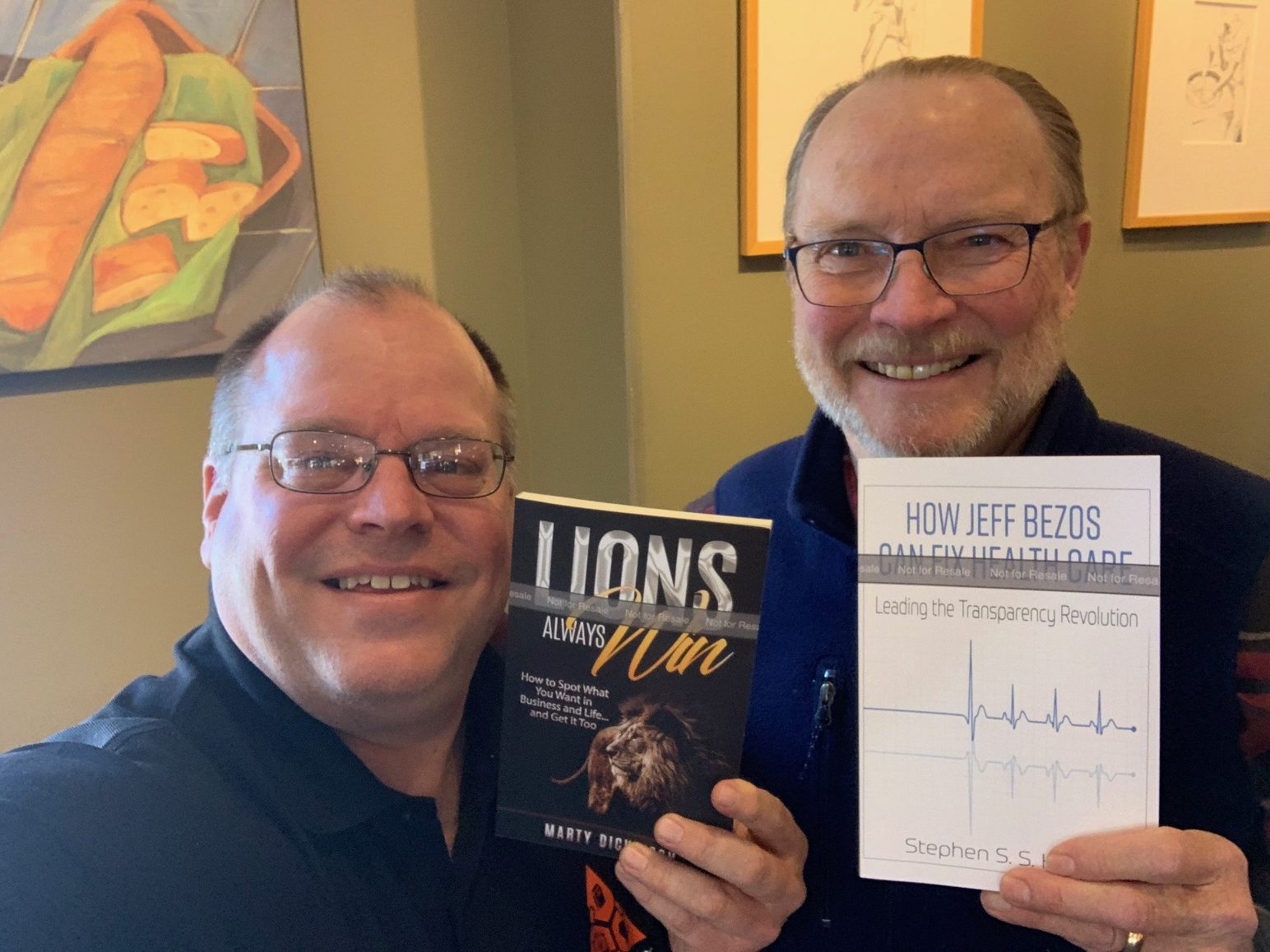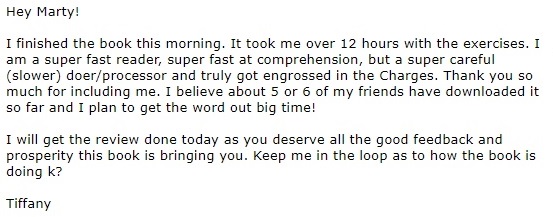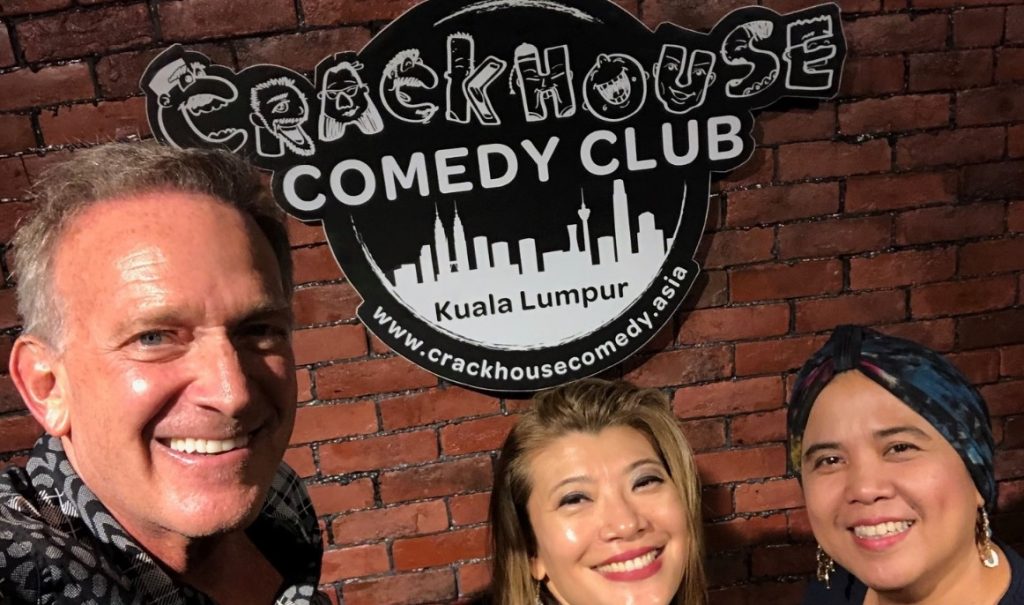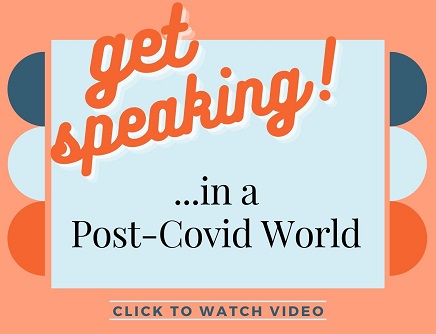Over the past two weeks, I’ve conversed with speaker friends to see how the Coronavirus has already impacted their speaking schedule for the coming months. About half relayed a positive outlook on the speaking industry going forward. The other half view the professional speaking calendar for 2020 to be more like the photo above, officially cancelled until September.
I was surprised to find just how many events have already been cancelled abroad (soccer, conferences) as well as in the U.S. (SXSW) due to the spreading of this potentially pandemic disease.
Here is an extensive list of tech industry events that have cancelled or postponed due to Coronavirus.
Well-known advisors to professional speakers, like Lois Creamer, are adding public warnings on social media instructing their followers to start looking now for alternative speaking stages beyond in-person live event venues.
If spreading of the Coronavirus persists, you will have many more important priorities to think about than just your business, your bank account and any upcoming speaking gigs. In fact, I strongly suggest you read this abundant collection of facts by futurist speaker, Tom Frey, on his post about Coronavirus’ impact on the east.
Although uncomfortable to confront, the impact of this virus on the speaking industry is a question you and I need to both be thinking about right now. How will your speaking business be impacted if Coronavirus expands and persists?
In this important post, I will attempt to offer some solutions. But, first, let’s start at the beginning.
What is the Coronavirus?
The Coronavirus, also known as COVID-19, according to the Center for Disease Control and Prevention (CDC), is a contagion that is contracted from person to person. It resembles all the symptoms of a cold, including runny nose, cough, fever, but goes to the lungs even more quickly than the usual cold.
One primary difference with Coronavirus, versus the typical flu, is that symptoms get worse and worse, unresponsive to any medication, until the condition graduates to a respiratory emergency causing you to not be able to easily breathe.
The other difference with Coronavirus is that there is no known cure or antidote. But a biotech company claims it has a vaccine already in the testing queue. I’ve heard tidbits on the news stations that a serum will take a year or more to establish a full cure.
As of the CDC’s last update on March 7, 2020, there have been 11 deaths in the U.S. and 164 cases in 19 states, according to the daily updated COVD-19 Situation Summary page on the Center for Disease Control (CDC) website.
The good news is that most people who become infected with COVD-19 recover in full. Many only experience mild symptoms. Some do not even realize the virus is inside them until they’ve received testing. Still, due to so many unknowns, several fears of this virus exist, including:
- Fear of over-exaggeration.
- Fear of inaccurate data about the spread of the disease.
- Fear of inaccurate number of deaths being reported.
- Fear that the number of people reported to have the virus is far less than the number of people actually with the virus.
- Fear of attention being given to prevention.
- Fear of not enough resources being provided to finalize a cure fast enough.
- Fear that the virus is actually a chemically enhanced weapon intentionally deployed. (Ironic how suddenly no more million-people protests on the streets of China, for example.)
Categories
- Blogging Tips (1)
- Business Tips (14)
- Coaching Tips (1)
- Email Marketing Tips (1)
- Event Reviews (1)
- Internet Marketing Tips (10)
- Positive People Progressing Recordings (10)
- Review Forms (1)
- Social Networking Tips (1)
- Speaking Opportunities (2)
- Speaking Tips (6)
- Toastmasters (1)
- Uncategorized (1)
- Video Tips (2)
- Website Tips (3)
As a result, event decision makers, attendees, venue managers (hotel staff)…and scheduled speakers too…are in a sort of holding pattern as to whether or not to cancel their plans.
Many countries are encouraging the public at large to just stay home unless you absolutely have to go into a community area.
And, there lies the problem.
How is the Coronavirus Already Impacting Live Events?
“My sources,” as they say in the news business, report that there are ten ways scheduled events are already beiung impacted by the Coronavirus include the following:
- People are choosing to not sign-up to attend events due to fear of contracting the illness at the event or during travel.
- People are registering but then later want a refund because they refuse to travel to attend.
- People are willing to attend, but their country won’t let them travel out of the country to get there.
- People are attending, but then blame the event if they get sick (cruises, for example).
- Some speakers are cancelling their commitments to speak for fear of contracting the virus.
- Some speakers (very few I hope and probably at only smaller venues like Meetups) are not showing up to speak, without notice, leaving the event organizer stranded at the last minute.
- The event organizers are canceling their events to prevent potential financial loss, or at least stop the bleeding of money already lost.
- The event organizers are holding off scheduling their events hoping the situation improves.
- Event organizers are rescheduling their events for a later date requiring speakers to reshuffle their own schedules to continue the engagement.
- Event organizers are “promising” to reschedule but haven’t solidified any dates yet leaving the speakers in a state of half commitment, half hoping some other opportunity emerges.
The hidden 11th impact involves governments postponing, limiting or canceling travel, and venue management postponing or canceling events or travel. I haven’t heard of this too much yet, other than China and Japan. But, I suspect it’s an option moving westward.
How are Professional Speakers Being Impacted by the Coronavirus?
The most universal impact thrusted onto speakers as a result of the Coronavirus is a financial one. If a speaker is financially committed by contract to speak, (s)he may receive 1/2 the payment up front at the signing of the contract. The other half would be paid on the day of the speaking gig.
But, what happens when the event is cancelled?
If the speaker was forward thinking, (s)he would have a term in the contract allowing for the speaker to keep the signing fee (first half of the full fee). But, this is where many event organizers attempt to recupe some costs.
If a speaker relies solely on getting leads and sales from the audience, that funnel filling opportunity has almost completely evaporated. Or, has it? Hmmmm. More about that in a moment.
Different Circumstances, Same Result
When my first edition of the book, Web Marketing All-in-One for Dummies (Wiley) hit the shelves, I booked four appearances in a week to speak at events requiring travel. The event organizers contacted me just because they saw the book come out. Through the book’s distribution, my name became known to them.
Two of those events offered to pay for my plane ticket, food and lodging. The other two agreed to my terms to cut a check for half my normal speaking amount to reserve the date and the remaining half to be paid before I took the stage. That was in 2009 just as the real estate bubble was bursting.
Within a month, the two paying gigs were cancelled. Within two more weeks, the free gigs were cancelled. Up to that point, I had only received a check from one of the two events. When the event organizer called to cancel the gig I was paid for in advance, I offered to return their money…even though it was in my contract to keep payment due to cancellation.
Why would I do that? I wanted to display myself as sympathetic and easy to work with in hopes of being asked back to speak at a later date.
My point in sharing this example is that there are always going to be periods of time when getting (and keeping) speaking gigs is more difficult than other years. The Coronavirus is very similar. Just like with the real estate bubble burst, we have no idea right now how long the Coronavirus will be infectuous.
For that reason, I challenge you to start seeking alternatives now to supplement your public speaking product mix.
Alternatives to Speaking on a Physical Event Stage
If you are already engaged to be a speaker for a live event that gets cancelled, here are a few things you can do:
- Private Virtual Live Event – Offer a private virtual event to showcase your talk. Since this type of event would be just you, instead of what would have been featured as an entire day-long or two-day event, provide something extra in your solo online event. You will need to help your event coordinator to promote this mini-event to the audience. So, start thinking now about an alternative session you can provide that has a bonus component. The session you assemble could be even better quality and more indepth than your original session on stage would have provided.
- Private Combined Virtual Live Event – Offer to contact a few of the other speakers on your own and assemble a sort of dream team to present a condensed conference online. Your event coordinator is way too stressed out right now to think out of the box and will appreciate the speakers coming together with a plan. As someone who has been on the event coordinator end, if I had an event up for potential cancellation, I personally would appreciate if my speakers came up with an alternative solution and presented it to me.
Ways to Continue Speaking on a Physical Event Stage...Even if the Events (or Speakers) Cancel
Nothing compares to speaking in front of a live audience with actual people in the seats. Zoom meetings are a great way to pass the time, but you have to speak in front of groups to keep your sharpness. Here are four ways:
- Stack Your Speaking Gigs – When you book a speaking gig requiring you to travel to the venue and stay overnight in the city, find other small events meeting before and after your event. As soon as you sign your engagement with the main gig, contact other meeting organizers and announce you will be in town speaking for a specific date, and that you are available for the day before or day after. If your main speaking gig cancels (I’ve heard of one major event so far that cancelled the day before it was to begin!), and you have already arrived in the city where you were booked to speak, you can sill make the trip worthwhile by having the other gigs already set.
- Speak Local – We have a growing database of locations needing speakers in Colorado that we provide our clients. You can easily stay in practice by speaking to local groups. If the event cancels, your loss is minimal compared to an event you have to travel to get to. Yes, we do charge for access and we vet all speakers before we allow them in. This limited (and qualified) access keeps our relationships strong with the connections we’ve established. When our contacts get an email where Here Next Year is referenced, the event coordinator on the other end of the email (or phone) knows you are a quality speaker who is highly capable of wowing their audience.
- Post Your Availability as a Fill-in – Speakers are nervous about traveling and going into public places too. Tell the public, groups, conference planners, and as many outlets as you can that you are available for “local” fill-ins even at a moment’s notice if a scheduled speaker bails.
- Create Your Own Live Event – Get a few speakers together to share the costs of a hotel speaking area and joint promote the event. That’s what we did with the prototype Speaker Theater in December. All speakers should gain experience managing and promoting events. You’ll be a better speaker (and speaking client for an event) as a result. More of these events are being planned for 2020.
Remote Ways to Continue Speaking to Your Intended Audience Even if the Event Cancels
Since I already posted a link to Lois Creamer’s post, I’ll just mention here that she was the first (that I saw) to push advice to the private National Speakers Association Facebook group that speakers need to start expanding their use of Zoom meetings by offering virtual programs to clients. I agree.
I also believe there are many more opportunities for using Zoom than just offering your same program at a reduced rate than what you would charge for speaking fees. Here are a few opportunities:
- Solo Virtual Live Presentation – If you are engaged with a speaking gig and it cancels, offer to give a variation of your talk in a virtual meeting setting. This example would involve scheduling a separate event date and time just for you to present to whoever signs up from who would have attended the live event as an audience member.
- Combined Virtual Live Presentation – Get together with two or three other speakers and suggest to the event coordinator that you as a group would like to present to the audience that was to attend the event.
- Addition of Speaker to a Different Event – Suggest to the event coordinator that you would like to serve as a guest presenter at one of their scheduled virtual events.
Remote Ways to Replace Your Canceled Speaking Gigs
We are bound to see emergence of more frequent, better attended, and better promoted, and more professionally organized virtual events. The typical marketing guys (Tony Robbins, Russell Brunson, Dean Graziosi), were among the first to jump into this virtual summit type of event. But, the Coronavirus will help to nudge more event planners in a variety of industries into the virtual event space. Here are a few ways speakers can use virtual meetings or events:
- Become a Guest Presenter – The best way to become a guest presenter for a virtual live event is to be an attendee first. You will meet the organizer and you will be granted time somewhere during the meeting to contribute in the form of asking questions of the presenter. Join our Virtual Live Events Facebook group to find virtual live events being held today, next week, and in the coming months.The quality of your questions, and your interaction with the speaker, will get your name in front of the event organizer and showcase your knowledge on the topic. Contact that organizer after the meeting and make your pitch.
- Start Your Own Single Calendar Date Event – One of the most challenging online events to provide is a single calendar date event. Attempt to be a one-person show to promote and conduct the event, and you’re setting yourself up for either a lot of work or a lot of heartbreak. Maybe both.
There has long been the term “getting butts in the seats” in the speaking industry.
Possibly the most difficult online event to get butts in the seat, and keep them there, involves the single date calendar event. Why? Consider these reasons:
* If you charge too much without providing enough value, people won’t signup.
* If you charge too little (especially free), people will think attending will have little value and won’t show up.
* If your event lasts more than an hour, you’ll have trouble keeping people focused and many will wind up leaving before you have concluded.
* If your event is too short, you won’t have time to cover enough detail to make the event worthwhile to your audience and they won’t come back the next time you offer an event.
The many failures of the single calendar date event gave birth to “the webinar.” Pretty much everyone will jump to say, “I hate webinars because all the speaker does is tell you his story for an hour and then spend another half hour selling you on something.”
That is the exact formula for sure. People respond best to stories. As a speaker, you know that. And, as a speaker, you also know how important it is to inspire your audience to take action with something, right? Well, stop beating up on webinars then. They give you the forum to do both. When you get the winning combination after running several webinars, you can record it and offer your webinar 24/7 without you even being at the event.
The up-sell of a single calendar live presentation or webinar, of course, is access to a multi-calendar date event, coaching, consulting or extensive training videos a person can watch at his or her leisure.
I suspect a lot of speakers will be going in this direction even if they’ve avoided conducting live single date virtual events or webinars with upsells. I mean, if you’re going to continue being a speaker, you’re going to have to eventually get some income.
- Host Your Own Multi-Calendar Date Event – Two years ago, I hosted an event where 20 of us met in my virtual Zoom meeting room as a group. We met every week for five months. The purpose of the event was to work through a curriculum I developed so that we could all practice our live video presentation practice skills. This was not a mastermind but a practice forum where all participants spoke on live video each week and contributed to the improvement of the members’ skills as well. It was a big hit! All of us improved dramatically because of the curriculum and due to the focus and interest each participant provided.
Group training, individual training, masterminds, are all examples of multi-calendar date events that can be conducted without ever shaking someone’s hand and meeting in person.
What extended training event could you offer over a three-month period for your industry?
- Build an Online Training Course – The final in this group is to build your own recorded course so that people can sign-up at any time to get training from you.Training courses in 2020 are intended to be delivered to the customer through online training course systems like Zenler, Teachable, Kajabi, Udemy, Thinkific, Podia. Some of these platforms are simple enough that even a non-technical professional speaker can set them up.
- PSA – The final online speaking-to-the-public option I’d like to suggest as a business building option for you was recently demonstrated by popular identity theft speaker, John Sileo, CSP. He made a public service announcement related to keeping your cell phone secure. Go watch the video he created and added to his Facebook page.
Expand Your Physical Product Line
One of my own predictions for the coming year is that events that do honor their promise to reschedule will become even more competitive for speaking slots. That means you and I, as active speakers competing for the same gigs, will need to apply every tool possible to prove our expertise to meeting and event planners.
My suggestion is that you take a few of those days where you would have been speaking and get your non-fiction book content done.
Just a few weeks ago, my team finished producing two books. One was my own with the title, Lions Always Win: How to Spot What You Want in Business and Life…and Get it Too. The other author is Steve Hyde who wrote, How Jeff Bezos Can Fix Health Care: Leading the Transparency Revolution.

My book launched on Amazon this past Tuesday and his is in pre-launch mode now for official launch on Tuesday, March 10.
My point of bringing this up is that new books get attention!
My book wasn’t even out an entire day yet and I got this email from a reader:

Within minutes, I replied:

Since our email discussion was happening in the moment (instead of taking days for me to respond like most peoples’ responsiveness to email), she replied right back.

What’s the moral to the story? GET YOUR BOOK DONE! Speaking opportunities can come directly from the book(s) you launch.
Final Thoughts
The speaking industry is already taking a hit from the Coronavirus. There is no question about that. Predicting how long, or to what extent, the virus will impact live events and the travel industry to get to those events, is too early to tell. I, for one, would rather get the virus and be home than be in some other country speaking only to get quarantined for two months in an unfamiliar land away from family.
So, I am delaying the scheduling of further Speaker Theater events until I can assure attendees and speakers will be safe. I suspect other event organizers will follow suit.
But, that’s not a very upbeat way to end a blog post! So, I reached out to speaking mentor to all of us, Scott Friedman, CSP, who had just arrived in Kuala Lumpur before giving this message for me to share with other speakers.
Message to Speakers from Scott Friedman, CSP, About Coronavirus

“My message is to look for the silver lining. Use this as an opportunity to eat healthy, exercise, think positive thoughts, be an ambassador of kindness, take good care of yourself and live in love and not fear. COVID-19 preys on the old and sick. It’s sad to see anyone die and your chances of contracting and dying are almost nil. I had 3 speeches cancel here with two in Malaysia and one in Singapore, but 3 others in Bangkok and Manila did not. I will honor my commitment. If by some incredibly slim chance I contract the disease, I will get treatment and will recover just fine like I would from a bad case of the flu. Wash your hands, live healthy, and live from a place of love not fear.”

